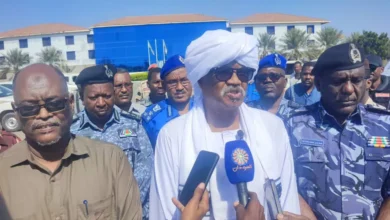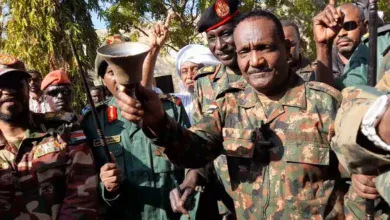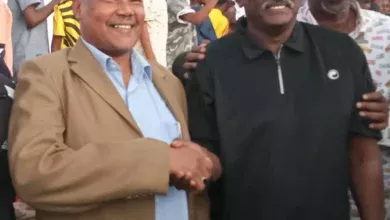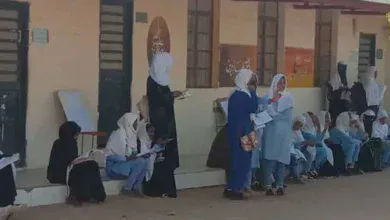Analysis of the diplomatic dynamics around the war in Sudan – Slowly – ✍️ Khaled Muhammad Al-Baqir

🟢 In a world full of challenges, a new diplomatic war has broken out, centered on injustice and conspiracy tactics aimed at targeting Sudan and its nationalism and undermining the confidence of its people.
🟢 Enemies seek to carry out a plan to dismantle the country, and this fuels tensions and malicious operations that undermine stability. Their strategies varied between failing to gain field positions, defeating supported forces on the battlefield, and advancing the army on all fronts and in all battles. All this prompted them to use the tools of diplomacy to achieve their hidden objectives.
🟢 This situation requires in-depth analysis to understand the complex dynamics that govern international relations and the opportunities available to defend national sovereignty.
🟢 The diplomatic dynamic around Sudan is experiencing an increase in external influences, as forces hostile to the intervention exploit the tools of the United Nations and the protection of civilians under the pretext of the inability of government forces to protect them. These forces rely on multiple strategies, ranging from direct political support, imposition of economic sanctions, pressure on the government with Title Seven, and other malicious maneuvers and signals. This form of psychological warfare aims to undermine trust in the national government and reinforce divisions between different groups. Sudan must realize these dimensions and design effective diplomatic strategies to address them.
🟢 The plan to dismantle Sudan is not just a passing idea, but rather a deliberate strategy aimed at destabilizing the country. This plan includes the overthrow of the national regime and the manipulation of social and political components by triggering internal conflicts.
🟢 The hostile forces intend to sow discord between the different parties, which facilitates the division of the country. The nation must therefore adopt a united approach to resist these tactics.
🟢 The experiences of Arab countries like Iraq, Libya and Syria show how external plans can lead to the dismantling of national structures and the destruction of societies.
🟢 In these countries, malicious hands exploited weaknesses to make stability an unattainable dream. We must learn from these experiences and the complex challenges these countries face to understand how to protect Sudan from a similar fate.
A clear vision and rapid response can be crucial to avoid recurrence.
The UAE plays a central role in supporting these conspiracies, as it provides material and political support to oppressive states. Its interests are linked to a complex network of disinformation and maneuvers aimed at controlling the country.
🟢 Collective efforts must be made to confront and challenge these interventions on the international stage. Ultimately, it is important to strengthen cooperation among Arab countries to confront these threats.
🟢 Sudan has the right to defend its sovereignty and independence, in accordance with international laws. The right to sovereignty is the cornerstone of the country's stability and prosperity. Therefore, the efforts of Arab countries must be combined to unify positions and face these international challenges within the framework of common interests. International cooperation is essential to the defense of sovereign rights.
The vision for the future requires a comprehensive national strategy that will get things back on track and provide practical solutions. The military should be the main protector of sovereignty and national unity, as it is considered the greatest hope in the face of these challenges.
🟢 By strengthening national loyalty, a prosperous future can be built that protects the rights of all and ensures lasting peace. Teamwork and national consensus are key to the success of this vision.





